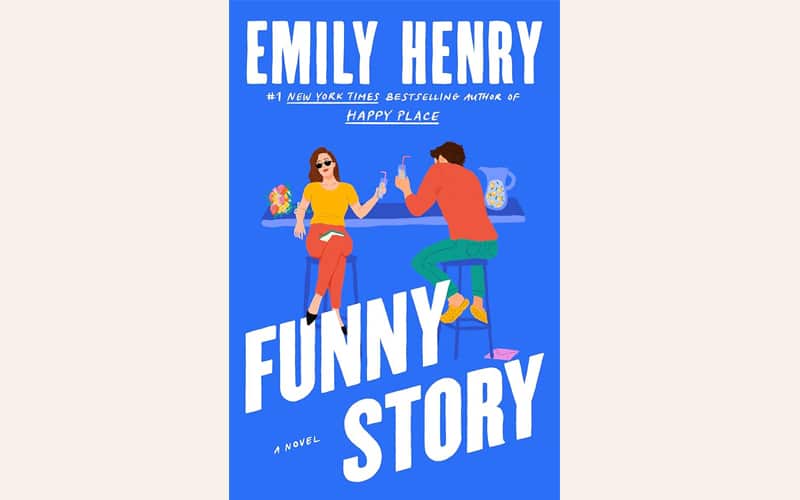If you’ve ever sat down with the Hallmark Channel on in the background (whether because this is the case, or because you’d rather not confess to ever having focused too much of your attention on the Hallmark Channel), you’ll be familiar with the basic plot of Emily Henry’s latest novel. What you won’t necessarily be familiar with, however, is the way in which a formulaic story can become a thing of tremendous joy when handled by someone who really knows how to write. Emily Henry really knows how to write.
Daphne Vincent finds herself stranded in the charming coastal town of Waning Bay, Michigan, having uprooted her life in anticipation of beginning a new one with her rich, handsome, widely beloved fiancé, Peter. Except, as Henry’s novel opens, Daphne is now Peter’s ex-fiancée, since he happened to realise during his bachelor party that he was actually in love with his childhood best friend, the loathsomely unloathable Petra. Why doesn’t Daphne just leave? Well, she’s the local children’s librarian, and couldn’t possibly abandon either the library or her dedicated band of youthful readers before the grand summer Readathon fundraiser, which is a whole 108 days away at the start of the book.
So, turfed out of the house that was never hers by the apologetic, deed-signing ex-fiancé, Daphne finds herself in the awkward position of moving into the spare room of Miles Nowak, who just so happens to be looking for a roommate because his long-term girlfriend, one Petra, has abandoned him. Can you see where this is going? When Miles and Daphne get invitations to the forthcoming nuptials of their exes, there really is only one thing to do: fabricate a relationship to make their sickening former lovers as jealous as possible.
Will Daphne leave Waning Bay at the end of the summer, having raised money for book-loving pre-teens and cunningly deceived her ex? If you’ve ever sat down with the Hallmark Channel on in the background, you’ll know the answer. Even if you haven’t, you can figure it out.
Why should you read this story that I’ve just summarised for you, and to which you can certainly guess the ending? Because it’s brilliant. That’s why. The writing is sharp enough to carve out dialogue, both spoken and interior, that make Henry’s characters more than just endearing caricatures. They have back-stories that resonate, and they live in a world that is, yes, full of artisanal cheesemongers and lavender farmers, but is also full of feeling and warmth, even tenderness and pain. In someone else’s hands, Funny Story could so easily be vomit-inducing. In Henry’s, it’s sheer joy.
Funny Story by Emily Henry is published by Berkley.







Click here to change your cookie preferences